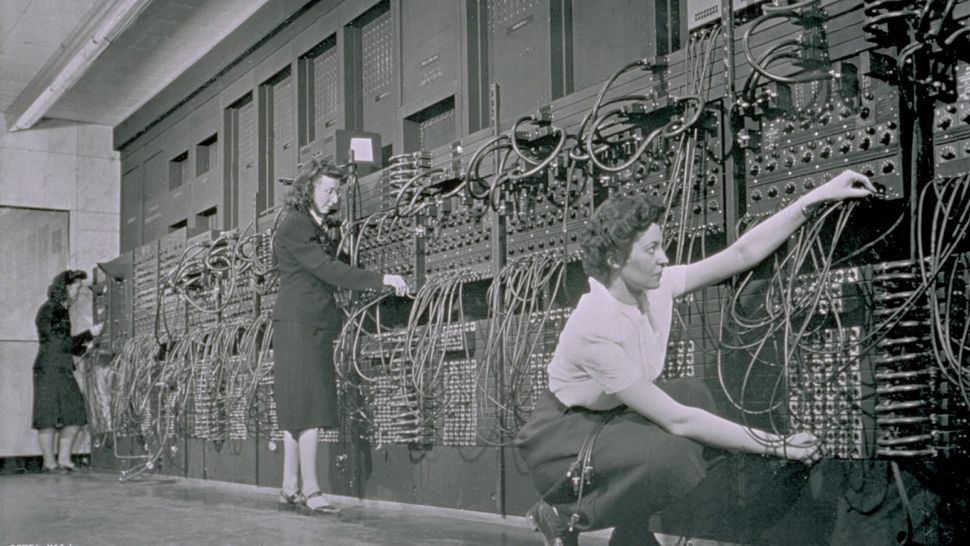By the end of this lesson, you should be able to:
- Explain what coding is in your own words.
{% embed url="https://youtu.be/8xy4TP3quSo" %}
Coding is the act of writing computer code to form a computer program.
The process of coding includes:
- Translating a set of input data into a set of abstractions inside a computer
- Defining what operations the computer performs on that data
- Determining what output the computer gives and the representation of that output
At their core, all programs, small and large, boil down to this: instructions** to a computer to process an input and give an output**.
The first programmable computer was the ENIAC. It was built to compute ballistic trajectories for artillery firing tables in WWII. It did not have a screen, keyboard or mouse; It took in input in the form of punch-cards.
Computers have come a long way since then, and we now have keyboards, screens, touchpads and voice control, but computers fundamentally have not changed. They take in input, manipulate data, and return some output. Computers, unlike humans, do exactly as they are told. And unlike humans, computers cannot make sense of context, or infer what to do. Writing instructions to a computer requires you to be logical and precise.
- What are 3 examples of software you use frequently that you do not access through your phone, tablet, or laptop?
- Examples: An ATM, your microwave, the lift.
- How do you give input to this software, how does it give you output?
- Define what that input is, what the output is, and what each software is responsible for.


